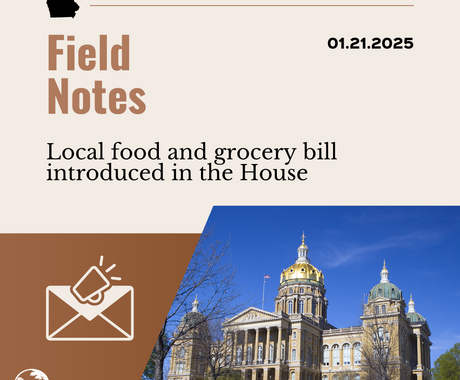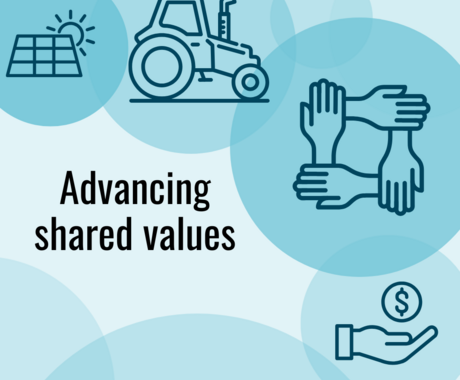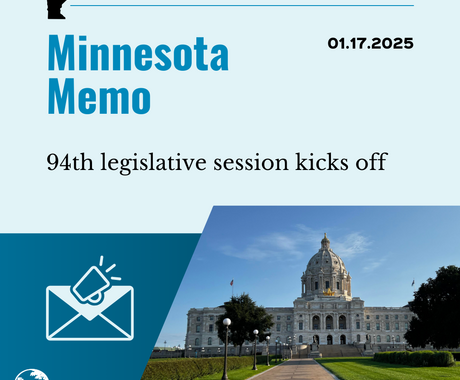When Jazz Marr started thinking about the number of people who don't know where their food comes from, they were inspired to learn more about that topic.
The desire to become more self-sustainable led Jazz to explore agriculture, and since 2020, they have been farming on a plot in a pocket of North Omaha, Nebraska. Jazz eventually began to implement conservation practices there as well.
“I care about the Earth and all the beings who inhabit it,” Jazz said. “I think it's important for us to know how to take care of the Earth when the Earth takes such great care of us—we are nothing without the Earth so we need to understand how to care for it.”
In an effort to continue their agricultural education, Jazz applied to the 2022 Center for Rural Affairs Beginning Farmer Conservation Fellowship Program and was chosen to participate.
The Center started this program for beginning farmers and ranchers looking for guidance in implementing conservation programs. Fellows complete coursework in conservation programs and practices, climate change adaptation and impacts, racial equity, and leadership.
They will also design and implement a conservation project on their own farm or land they are farming, and present at the annual Nebraska Sustainable Agriculture Conference on their findings in February, when the program ends.
Although Jazz and their farm partner decided to go separate directions for the 2023 growing season, Jazz was able to learn much during the few seasons their farm, Sweet Selma, operated in the Omaha neighborhood of Benson. The farm sat on one-seventh of an acre, and they grew a variety of vegetables and herbs.
“We did a 10-person season CSA for spring, summer, and fall,” said Jazz. “We chose our crops because we either had experience or wanted experience growing them in Nebraska. It’s pretty incredible how much we produced, considering how small of a plot we had.”
Jazz covered the ground with straw or pulled weeds to help keep the soil moist and protected from overheating and rain splash. They are interested in getting drip irrigation set up or doing rainwater harvesting in the future.
Jazz hopes the Center’s fellowship program will provide educational support in implementing more conservation practices, as well as monetary support for the supplies to make those practices possible.
“I hope to continue learning in the classes, and go on another farm tour or to a conference,” Jazz said. “I really want to purchase a lot in north Omaha, and then my next step would be to buy some acres outside of the city. As a black farmer, is it incredibly important for me to own land.”
Jazz finds inspiration in different places and uses it to keep moving forward in their agricultural journey.
"What motivates me to farm? My ancestors and community. Black and queer liberation," they said. “I farm for freedom and peace. Farming came to me when my mom passed, and in ways it feels like a saving grace or destiny. I'm forever grateful and excited to see what my life becomes with it.”
To learn more about the Center’s Beginning Farmer Conservation Fellowship Program, and for information on becoming a 2023 fellow, visit cfra.org/beginning-farmer-conservation-fellowship-program.





